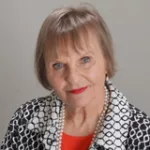Build a Foundation to Age Independently

Busy people often don’t think critically about the future. Jobs, raising kids, caring for loved ones, practicing faith, staying fit, and learning new skills all consume time and energy. It’s no surprise few have the energy to negotiate the affairs of later life — the affairs that impact the decades ahead.
Regrettably, when a person becomes older, one feels overwhelmed and fatigued. So, most choose to ignore the looming demands.
Through 15 years of research on aging-related topics, I’ve learned and now coach individuals how to plan ahead. Independence is never guaranteed: It’s a well-earned reward requiring reasoning skills, commitments, and personal responsibility. If you yearn to be independent in your 70s, 80s, and 90s, hard work is essential. Aging well isn’t an inevitable entitlement.
So, where do you begin?
Start with the practical stuff. Then you’ll be free to pursue coping skills that govern independence like self-reliance, managing stress, a strong community, and maintaining activities. But the first step is getting the functional affairs handled first.
Every adult navigates multiple challenges when growing older. But the most worrisome often involves the fear about not having an adult child looking out for you. I hear it frequently when speaking to seniors and family caregivers. It was the same worry I had for myself after taking care of relatives.
What sets those aging well apart from those who are not? Having a plan. Those with a plan age better because they’re prepared to manage surprises. More importantly, they’ve done the research and have learned the action steps.
Society is generally reactive, especially when dealing with life events like medical emergencies or other sudden care needs. No one wakes up thinking, “Today I’m going to put a plan together just in case I need it.”
But people do need one, they just don’t know where to start.
Well, start with getting the legal documents completed. Organizing your affairs and keeping them in order. Document and preserve important contacts.
For the legal matters, include copies of your advance directive and power of attorney, your will and living will, and details regarding the plans for your estate.
You will also want to plan for the possibility of needing a Representative Payee. An Advance Designation will assign a representative payee who manages Social Security benefits to pay for the needs of the beneficiary, keeps records of expenses, and provides an accounting to the Social Security Agent when requested.
Organize your affairs by listing such important contacts as your doctor or doctors, your current medications, and any medical problems. Sort through and file your insurance cards and ID, the deeds to your house and car, bank statements, passwords, and any documents relating to anatomical gifts or burial instructions.
Speak with your doctor, lawyer, and financial advisors to ensure you have all the correct paperwork completed. Ask lawyers in advance about their fees before meeting with them to complete paperwork.
Tell a trusted family member or friend where your important paperwork is kept in case of an emergency. Give permission to your doctor and lawyer to speak with your family or caregiver about any questions or issues, should they arise. Without your expressed permission, a caregiver may not receive the information needed to answer questions about your care, insurance claims, or household bills.
Once the basics are in place, you’re free to move on to other crucial matters like social connections and building a strong supportive network — one that resembles family and that will look out for each other in the same way loved ones do.






